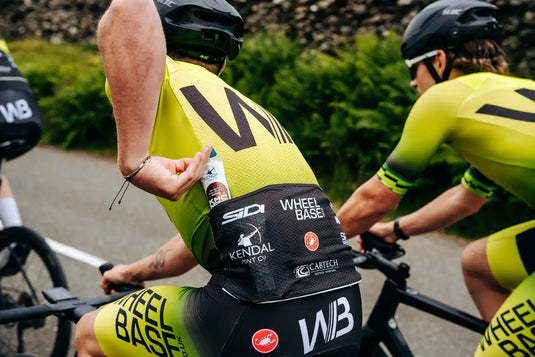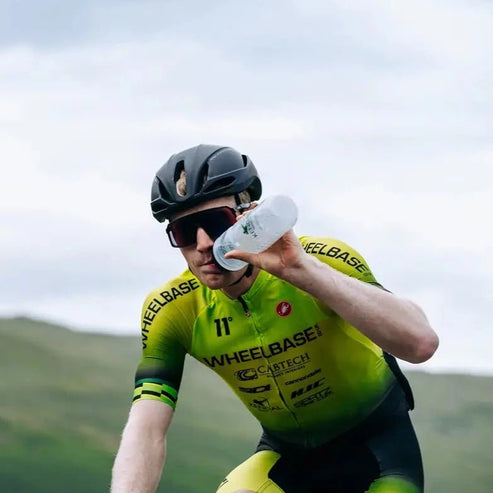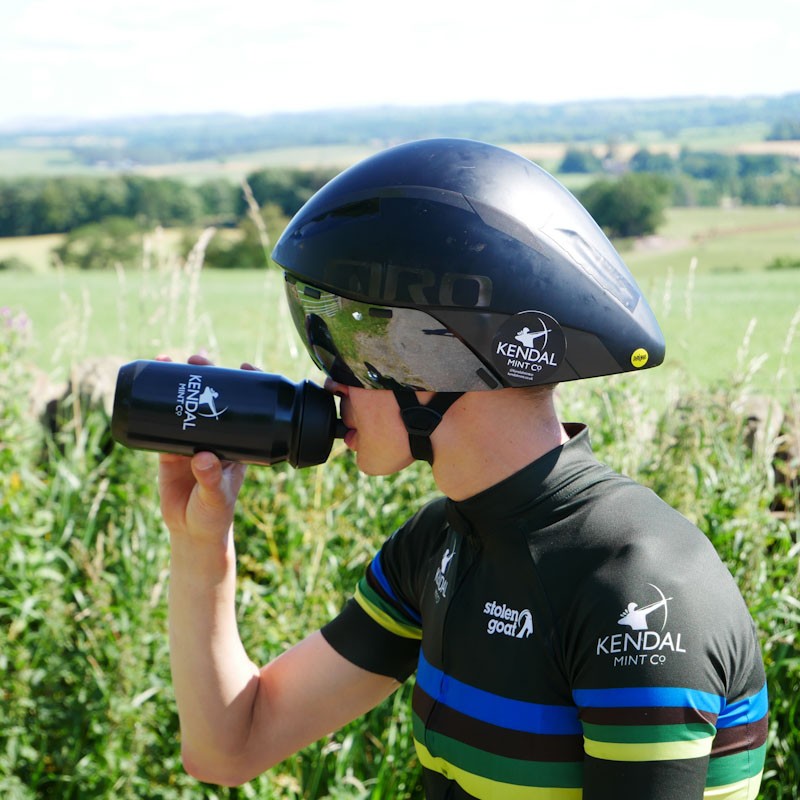21 stages (21 days), over 3,498km in distance, and 52,230m of elevation gain, in one of the most grueling and physically demanding riding over some of the hardest and steepest terrain. The 2024 Tour de France promises to live up to it's name as one of the most demanding sporting events in the world.
Whilst we watch these cyclists push their bodies to their absolute physical limits, it's clear they're in peak physical condition with rigorous training having taken place over years.
But what about fuel? The demands of the Tour require meticulous attention to nutrition and hydration to ensure optimal performance throughout the grueling stages. Riders have to pay very close attention to their nutrition as it can be the difference between podium or not.
1. Understanding Energy Demands:
The Tour de France covers thousands of kilometers over three weeks, challenging riders with varied terrain and weather conditions. To sustain such an extraordinary physical effort, cyclists must comprehend their energy requirements. A typical rider may burn anywhere from 6,000 - 10,000 calories per day during the race. Consequently, fueling strategies should focus on providing ample energy to support performance and prevent exhaustion.
2. Carbohydrates: The Powerhouse of Energy:
Carbohydrates are the primary fuel source for endurance athletes, including Tour de France competitors. Consuming adequate amounts of carbohydrates is crucial for sustaining energy levels and delaying fatigue.
During the Tour de France, cyclists consume upwards of 10,000 calories per day, depending on their weight and energy needs. The majority of these calories come from complex carbohydrates in the form of pasta, rice, bread, Fruits and Vegetables at breakfast and meal times to ensure a slow release of energy throughout the day.
During the race, riders will aim to consume 6-10 grams of carbohydrates per kilogram of body weight each day. This can be achieved through a combination of whole foods, energy gels, energy bars, and isotonic drinks.
A well-designed energy gel will contain a blend of carbohydrates, Electrolytes, other vitamins and often Caffeine to avoid fatigue. Such as the KMC NRG GEL with our "Dual Charge" formula, combining Maltodextrin & Fructose in a ratio of 2:1 to maximise your Carbohydrate absorption for instant but long-lasting energy. More about our Dual Charge formulation here. They also contain all four essential electrolytes designed to aid hydration, avoid early onset fatigue and cramps. Plus our B-vitamin formula designed to aid bodily functions.
ENERGY GELS | The Dual Charge Formula | Energy Gels - What are they | Why do some energy gels hurt my stomach? | Refillable Energy Gels
3. The Importance of Protein:
While carbohydrates take the spotlight, protein plays a vital role in repairing and maintaining lean muscles. During the Tour, cyclists experience significant muscle damage, and consuming enough protein aids in recovery. They generally aim for 1.2-2 grams of protein per kilogram of body weight daily, opting for lean sources such as poultry, fish, eggs, legumes, and dairy products which are always supplemented by protein bars or protein recovery shakes. Post-ride recovery meals should include a good balance of carbohydrates and protein to facilitate muscle repair.
Protein is key to an endurance athletes diet. It isn't stored in the body like Carbohydrates, it's broken down into amino acids which aid in the repair of exercise-induced damage to muscle fibers, Promote training-induced adaptations in muscle fibers and Facilitates the replenishment of depleted energy stores. So it's important to regularly incorporate in into their diet.
Protein recovery drinks make for a great way for riders to get their protein intake. Whey protein is considered the best option for fast and effective delivery of essential Amino Acids before and after training to help optimise recovery. Riders experience a lack of hunger post exercise and shakes offer a convenient method of taking protein as a drink. Whey Protein is very easily digested and absorbed from the gut more quickly to start the rapid recovery process.
KMC PRO MIX offers a delicious well-rounded solution with 21g protein, the dual-charge carbohydrate formula, informed sport accreditation and they're gluten free.
PROTEIN RECOVERY | Why Protein is key to a successful athlete's diet | KMC PRO MIX
4. Hydration: Quenching the Thirst for Success:
Staying adequately hydrated is crucial for performance and overall well-being during the Tour de France. Sweating excessively, riders lose vital fluids and electrolytes, which must be replenished. Dehydration can lead to a drop in energy levels, increased fatigue, and impaired performance. They develop a hydration plan that includes regular fluid intake before, during, and after each stage. Aiming for 500-1000 ml of fluids per hour, adjusting based on weather conditions and personal sweat rates. Consider incorporating electrolyte-rich sports drinks to replace sodium, potassium, and other essential minerals lost through sweat.
Good sports drinks provide electrolytes and carbohydrates that help maintain energy levels and replace lost nutrients. KMC ISO MIX is an isotonic drink powder, easily mixed into 500ml of water and provides: 34g of Dual Charge carbohydrate and all four essential electrolytes (sodium, magnesium, calcium and potassium). It's Informed Sport tested, Vegan, Gluten Free and easy on the stomach.
ISOTONIC DRINKS | The importance of Electrolytes | The Dual Charge Formula | The importance of Hydration
5. Timing The Tour de France Fueling Strategy:
In a race as demanding as the Tour de France, timing your fueling strategy is essential. Riders distribute carbohydrate and fluid intake evenly throughout each stage, avoiding large meals that can cause discomfort. During the race, they consume small, frequent amounts of carbohydrates every 30-45 minutes to maintain energy levels. All from different sources of fuel, such as energy gels, energy bars, and sports drinks.
6. Recovery: Repair, Replenish, Repeat:
Recovery between stages is vital to sustain performance throughout the Tour de France. Riders optimize your recovery by consuming a post-ride meal or snack within 30 minutes of finishing each stage. This includes a combination of carbohydrates and protein to replenish glycogen stores and initiate muscle repair. Additionally, they prioritize rest, sleep, and relaxation to their your body to recover fully before the next stage.
Fueling for the Tour de France is no easy feat. It's a multifaceted process that requires careful planning and execution. By understanding the energy demands, emphasizing carbohydrates, including protein, prioritizing hydration, timing your fueling strategy, and focusing on recovery, riders can push their physical limits in incredible feats of endurance, to maximize their chances of success in this legendary race.






